First-gen college student prepares for grad school future focused on evolutionary biology research
Credit: Arnold and Mabel Beckman Foundation/Kaerie Ray
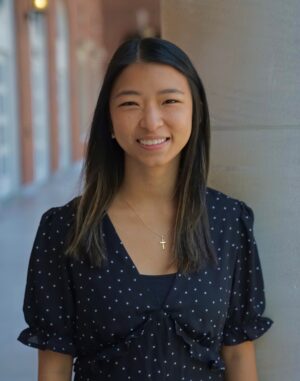
College of Arts and Science senior Sarah Hourihan is eagerly awaiting journal publication of a first-author manuscript featuring results of research on the dark-eyed junco songbird completed as a Beckman Foundation Scholar. The paper, available as a pre-print on bioRxiv, signals the end of work on one research project in the area of birdsong evolution and marks the start of a senior honors thesis investigating effects of urbanization on birdsong across time and space. As the review process draws to a conclusion, the moment creates a mixture of feelings: The thrill of anticipation for what’s to come, the satisfaction derived from good work done, and the confidence built through goals achieved. Hourihan had an early interest in biology but the journey to conducting undergraduate research at Vanderbilt University would require resourcefulness, determination, and support.
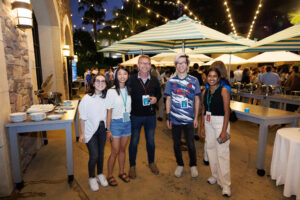
“My early life experiences are quite unique,” Hourihan explained. “I was adopted from China when I was twenty months old, which has had profound impacts on my life. Growing up, my parents were always transparent about the fact that I was adopted from China. However, as a young child, I did not understand what that truly meant. I knew that biological relatives share physical traits, but I wanted to know why and how. Not only did my adoption spark my interest in biology, it has also reinforced the importance of seizing opportunities and the value of education. My unique beginnings have made me ponder what life would have been like had I not been adopted. When I think about the prospect of growing up in poverty in a country that has discriminated against females, specifically through the one-child policy, I feel especially motivated to make the most of available opportunities. In high school, my enthusiasm for biology and music performance prompted me to pursue advanced studies, and I became the first in my family to go to college. Being a first-generation college student has brought some challenges as I navigate uncharted territory. My family is very supportive, but they can’t offer much insight into higher education. With the help of online resources and excellent mentor figures, I have been able to pursue an advanced degree. I am proud to be a first-generation college student and I am inspired to help others navigate higher education.”
For Hourihan, the motivation to apply to the Beckman Scholars Program came during a search for summer research opportunities freshman year. There were Vanderbilt programs, NSF REU programs, and the Beckman Scholars Program, which had just renewed funding for the institution in 2022. Nicole Creanza, assistant professor of biological sciences, shared both an informational flyer and encouragement to apply.
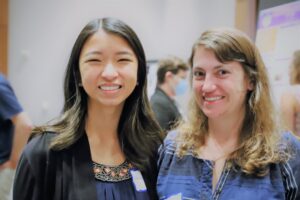
“After I learned more about the program, I was excited to apply,” shared Hourihan. “The Beckman Scholars Program is unique because it gives the research scholars freedom over their projects and allows them to continue working with their current mentors. If I participated in an REU program, I would have moved to a different university for the summer and completed a short-term project—one I may not have had control over.”
The Beckman Scholars Program provides 15-month mentored research experiences for exceptional undergraduates in chemistry, biological sciences, and interdisciplinary combinations thereof. Contrasted with other programs typically a summer in duration, it represented an opportunity for a long-term project and a chance to set big research goals with funding support.
“As I was moving into my second summer of research as a Beckman Scholar, it was such a relief to not have to secure more summer research funding. Instead, I could focus my time and energy on my research,” Hourihan reflected. “Finally, the Beckman Scholars Program is special because it creates a network of scholars from all over the United States. I loved attending the annual Beckman symposia and getting to meet the other scholars, Arnold O. Beckman Postdocs, and Beckman Young Investigators. It was so fun to hear about the extraordinary, diverse research that the Beckman Foundation supports. Although I have completed my time as a Beckman Scholar, I will always look back fondly on my time as a Beckman Scholar. I still feel connected to the Beckman Foundation community through the email newsletters I receive regularly. Once a Beckman Scholar, always a Beckman Scholar!”
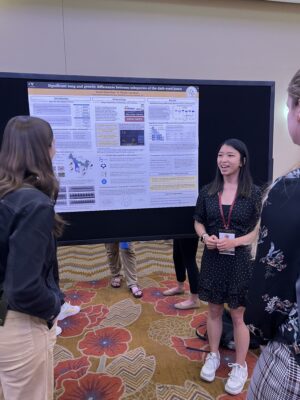
Hourihan’s Beckman-funded research was the continuation of a project started a few months before applying. It began as a study to determine if song differences existed between subspecies of the dark-eyed junco. It expanded to include investigation of genetic differentiation and geographic distribution of the subspecies, as well as evaluation for correlation amongst song, genetic, and geographic data.
“I was able to determine that song differences and genetic differences are correlated with geographic distance,” Hourihan reported. “In other words, dark-eyed juncos that are closer in range are more likely to share song characteristics and be more genetically similar. Additionally, my Beckman-funded research included building a machine learning classifier to test the distinguishability of the subspecies’ songs.”
The machine learning classifier aided the discovery that subspecies pairs that do not hybridize have more distinguishable songs than pairs that do. According to Hourihan, the discovery suggested learned song could reinforce population boundaries. Furthermore, the genetic analyses revealed similar results which showed subspecies pairs with more distinguishable songs also displayed greater genetic differentiation. All this points to enhanced understanding of the dark-eyed species complex gained from a methodology that could be applied to other species in order to learn more about how animal behaviors adjust to stressors and what influence that has on ecological interactions.
“One of the driving questions for my research on the dark-eyed junco was: How do learned behaviors reinforce reproductive isolation? There are many mechanisms for reproductive isolation, including but not limited to hybrid infertility, geographic barriers, and differences in courtship behavior,” Hourihan said. “Since birdsong is a learned behavior and functions in mate attraction, it has the potential to drive reproductive isolation between species. The dark-eyed junco is a unique species to study because it consists of six subspecies that have partial geographic isolation and plumage differences. The subspecies are able to hybridize but hybridization events are rare.”
For Hourihan, this creates questions of how the birds stay reproductively isolated and whether they mostly use visual plumage cues or songs to achieve it. Research results imply significant song differences for the subspecies that are distinguishable using machine learning and may factor into reproductive isolation.
“Currently, the dark-eyed junco subspecies are collectively considered one species;” explained Hourihan, “however, if their plumage, genetic profiles, and songs continue to diverge, there may be an inclination to consider them different species in the future.”
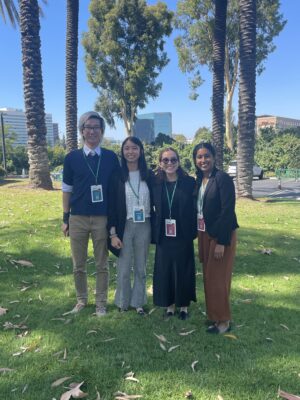
But the future doesn’t only hold plans for the dark-eyed junco. Hourihan’s plans include an honors thesis project for Senior year and applications to research fellowships and graduate programs. Goals for graduate school involve continuing evolutionary biology research and investing in teaching and mentorship, opportunities that make Hourihan optimistic and excited.
“Words of encouragement for other young researchers: I know this is cliché but dream big and relentlessly go after what you want! Looking back on my own life, there were several moments when I questioned myself, my capabilities, and my potential to achieve a goal,” shared Hourihan. “Sometimes this kept me from going after opportunities, other times I pushed past the doubt and tried anyway. Even if your pursuit of an opportunity isn’t successful, there is still something to be learned from each process. If you don’t try at all, you never will know what could have happened. Don’t count yourself out; you are probably more prepared than you think! Send the email you have been nervous to send, apply to the research fellowship, submit the graduate school application. You have already made a lot of progress, so don’t let yourself get in the way of your dreams.”
What are you working on now?
“Currently, I am competing my final year at Vanderbilt University. I am working on a senior honors thesis that investigates urbanization’s effects on birdsong across time, space, and species. Rapid urbanization, specifically noise pollution, is thought to have effects on songbirds. The low-frequency ambient city noise can interfere with birdsong frequencies. Through comparative analyses between birdsongs from 60+ years ago to those recorded more recently, I have found that some species sing at higher frequencies than they did decades ago. Although this project is ongoing and more tests need to be completed, the hypothesis is that increased noise pollution has led to this change.”
How were you impacted by the BSP Mentor experience?
“One of the greatest blessings of my undergraduate years has been my research mentor, Dr. Nicole Creanza. When I joined Dr. Creanza’s lab the summer after my Freshman year, I had no prior research experience. Although my research lab is mostly computational, I had never even coded before. I am so grateful that Dr. Creanza has invested in me so generously. Because I do not work with a graduate student or a postdoc, Dr. Creanza and I have always worked together for my projects. I realize that having this amount of undivided attention from a research PI is not universal amongst undergraduate researchers, so I feel very fortunate. I have learned a lot from my close collaboration with Dr. Creanza, which has helped me grow as a researcher and become more independent. One of the ways the Beckman Scholars Program stands out is their selection of Scholar/Mentor pairs. My time as a Beckman Scholar truly was a collaborative effort between me and Dr. Creanza. From the initial research proposal to our weekly 1-on-1 meetings, Dr. Creanza has invested a lot of time and energy into me and my project…Additionally, Dr. Creanza was able to attend the 2022 Regional Beckman Symposium at Georgia Tech with me, which was a lot of fun!”
